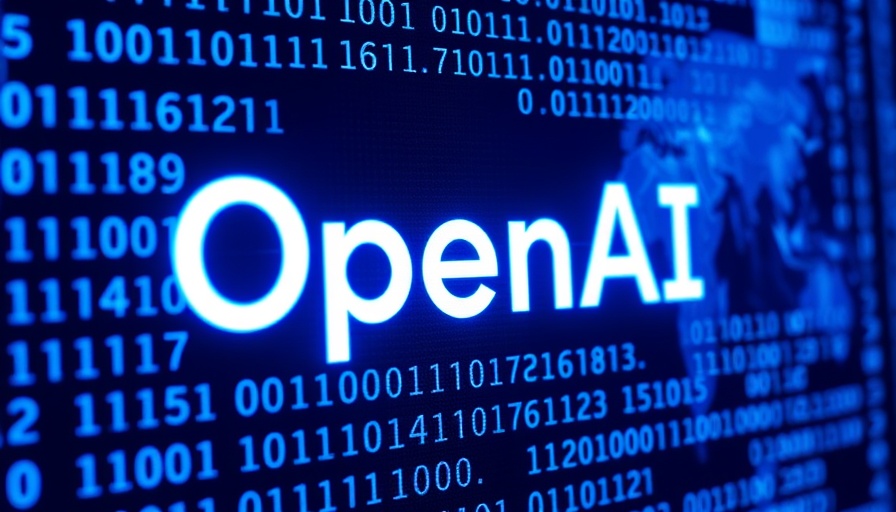
Unlocking Real-Time Shopping: Amazon's Next Step in AI
In an ever-evolving retail landscape, Amazon has unveiled its latest innovation: Lens Live, an AI-powered shopping tool designed to enhance in-person shopping experiences. This groundbreaking feature builds upon Amazon Lens, allowing users to point their smartphones at objects they encounter in the real world and discover matching products through a visual search. This move positions Amazon squarely as a leader in combining physical and digital shopping realms, making consumer interaction more interactive and informative.
Exploring the Technology Behind Lens Live
Lens Live integrates advanced AI functionalities, leveraging Amazon SageMaker services to deploy machine learning models at scale. By running on AWS-managed Amazon OpenSearch, the tool is designed to provide swift and accurate results, seamlessly enhancing users' shopping experiences. Shoppers can now tap on items in their camera view, revealing suggestions in a convenient swipeable carousel—a functionality that encourages exploration and discovery of new products.
The Rise of AI in Shopping: A Broader Context
The launch of Lens Live aligns with Amazon's commitment to integrating AI into its broader shopping ecosystem. The tech giant has previously introduced features like AI-powered shopping guides and the AI assistant Rufus, demonstrating a clear trend towards enhancing customer experience through innovative technology. While competitors such as Google Lens and Pinterest Lens have laid the groundwork for visual search technologies, Amazon's approach adds personalized elements that tap into user behavior, such as comparison shopping, effectively capturing consumer interest.
What This Means for the Future of Retail
As Lens Live becomes a staple for tech-savvy shoppers, the implications for the retail industry are profound. With consumers becoming more reliant on digital integrations while shopping in physical stores, retailers must adapt to this trend. Amazon's venture into real-time AI facilitates a shift in how products are marketed, bought, and understood. This could lead to future AI-driven innovations like personalized marketing that reacts to immediate consumer needs.
Critical Insights and Considerations
However, the growing implementation of AI technology raises questions regarding data privacy and security. As users interact with these platforms, their shopping patterns and preferences are collected and analyzed. Retailers must be vigilant about implementing robust data protection measures to safeguard consumer information and maintain trust. AI platforms offer numerous benefits but also highlight the importance of transparent data practices, especially with the rising concerns surrounding data breaches.
How to Leverage Lens Live for Better Shopping
For shoppers eager to maximize their experience with Lens Live, embracing its functionalities can lead to more informed purchasing decisions. Here are some tips:
- Utilize the Comparison Feature: While browsing physical stores, use Lens Live to compare prices and find better deals on the products you desire.
- Engage with AI Suggestions: Take advantage of AI-generated product summaries and suggested questions to make informed choices before purchasing.
- Stay Updated on New Products: Use Lens Live to explore newly released or trending items that match your interests.
Simplifying AI for Everyday Consumers
Ultimately, Amazon Lens Live marks a significant progression towards making advanced technology accessible and beneficial to everyday consumers. By effectively marrying the convenience of online shopping with in-store experiences, it opens doors to new shopping paradigms fueled by emerging AI trends.
As we continue to witness the evolution of technology in retail, it will be fascinating to see how such innovations not only enhance shopping experiences but will also redefine the future of commerce itself. Are you ready for a transformative shopping journey with AI tools?
 Add Row
Add Row  Add
Add 




Write A Comment